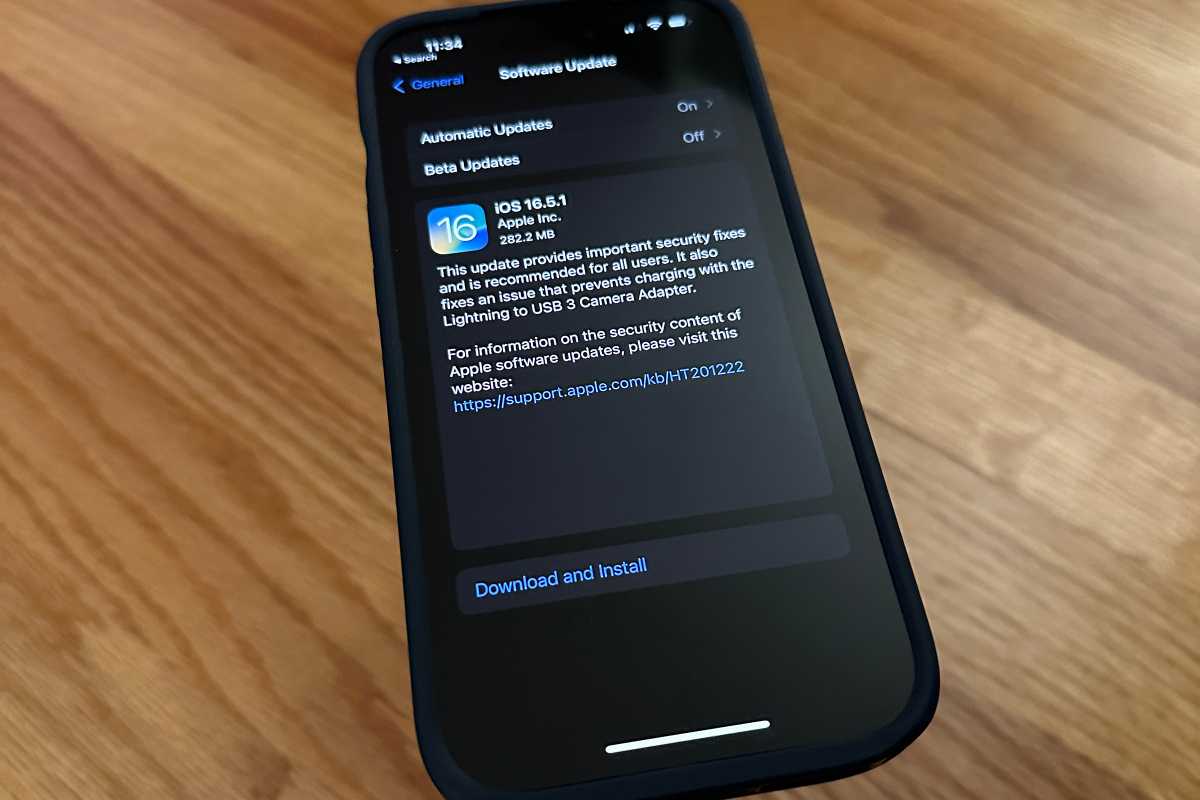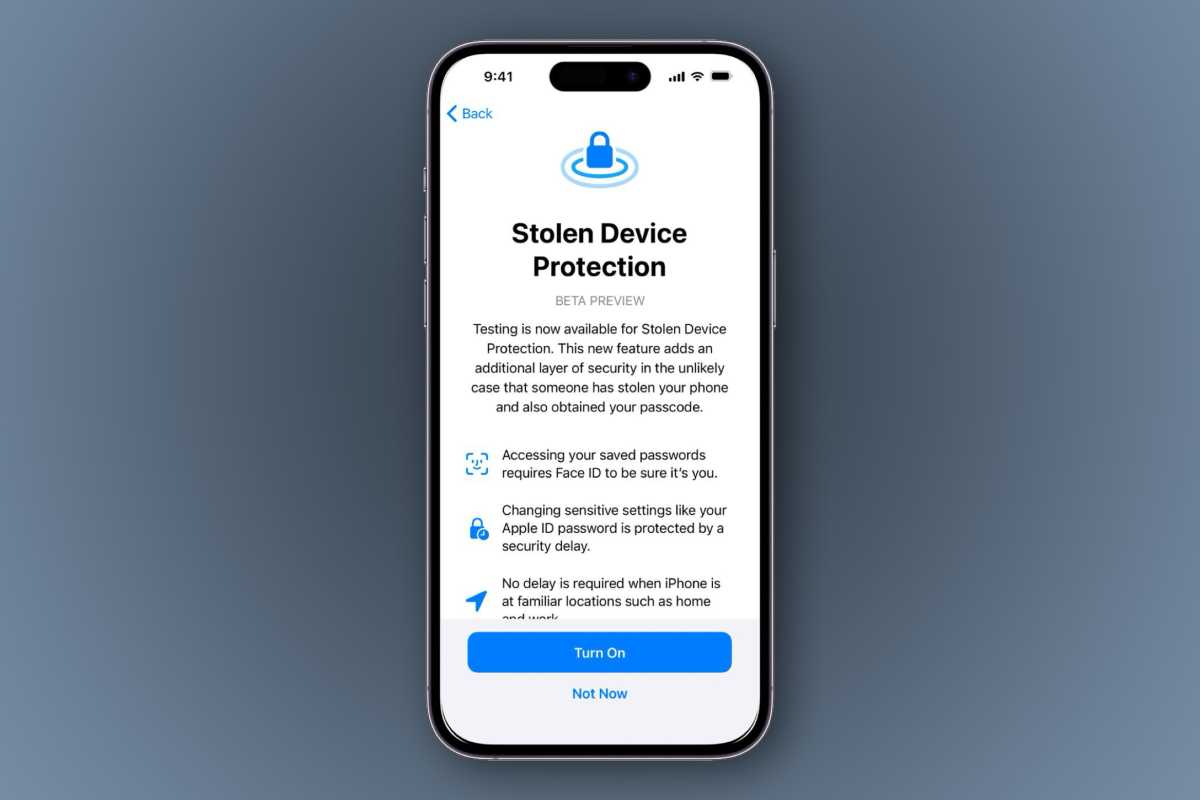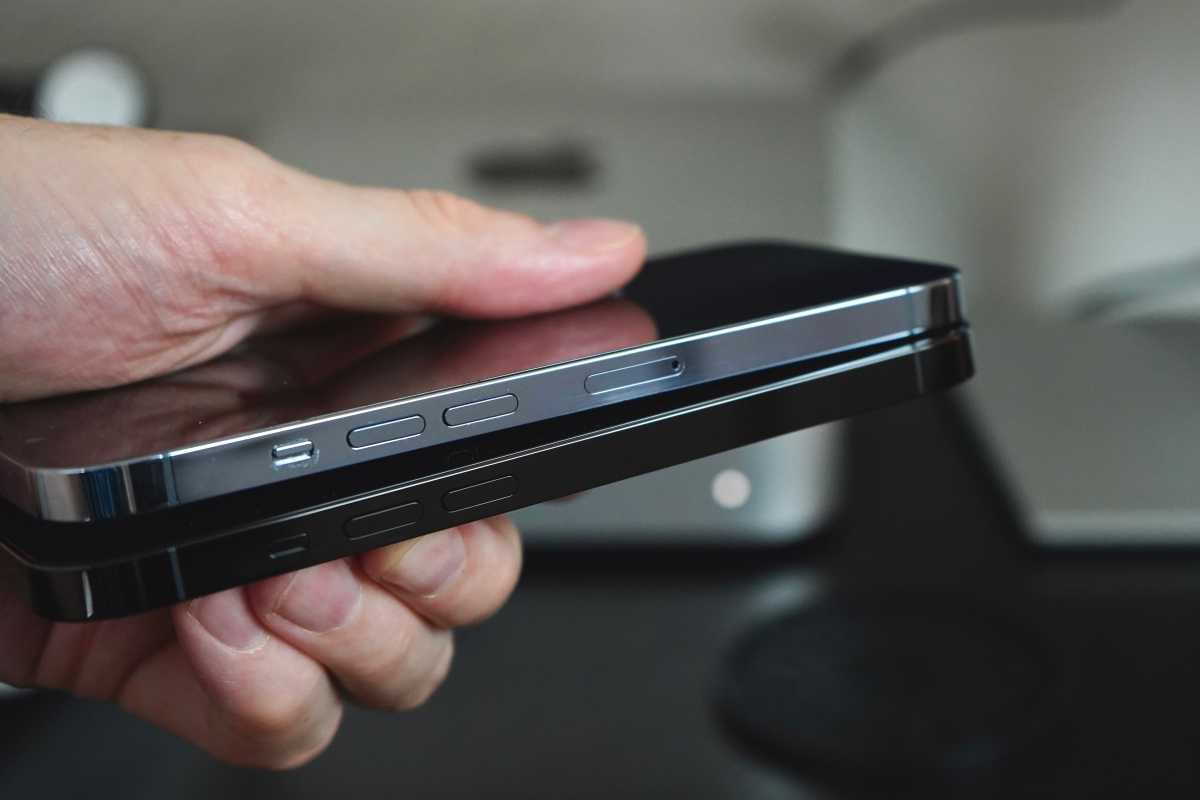Your iPhone may seem to be an impenetrable vault, protecting your private data, photographs, messages, and apps secure. But guess what? It won’t be as tightly locked down as you think. While Apple retains including and bettering iOS safety features, some sneaky methods thieves and hackers can get in nonetheless exist.
Let’s have a look at some frequent safety threats iPhone customers face and the way you can defend your self. From sneaky shoulder surfers to difficult phishing assaults, it’s time to uncover the hidden dangers lurking in your pocket.
An replace is ready
We all obtain notifications about software program updates, however they’re straightforward to disregard, particularly if there aren’t any new options to strive. But delaying them can go away our iPhones weak to critical threats. Every replace incorporates quite a few safety patches that can shut down serious threats. For instance, the iOS 14.7.1 replace in 2021 focused the Pegasus spyware, which was used at a excessive degree to entry messages, activate the digicam and microphone, and accumulate location knowledge.
To avoid threats, set up software program updates promptly. Keeping iOS updated in your iPhone is among the easiest methods to safeguard your system.

iOS updates embrace safety updates that patch vulnerabilities that might expose your iPhone to hackers.
Foundry
Your PIN is exhibiting
You may think it’s secure to unlock your iPhone with a PIN in public however think once more. In latest years, thieves have used a sneaky approach referred to as “shoulder browsing” to observe folks enter their passcodes after which snatch their iPhones to get full entry to their system.
Apple is aware of these threats are actual, in order that they’ve added some options to iOS to assist hold your iPhone secure. First up, they added Stolen Device Protection in iOS 17.3. This characteristic makes it a bit more durable for somebody to steal your iPhone or break into it. When you attempt to change an Apple Account password or Face ID settings, it’ll delay you. And it’ll additionally cease sure actions with out Face ID or Touch ID authentication.
Of course, folks can additionally steal your iPhone and attempt to guess your PIN. Apple has a cease for that too. In iOS 18.1, Apple added an inactivity reboot characteristic that can mechanically reboot and put it into the “Before First Unlock” state, making it more durable for somebody attempting to guess your PIN.
But above all, select a posh PIN and be further cautious when getting into it in public. Use Face ID or Touch ID each time attainable.
A malicious profile is hiding
Have you ever clicked on a hyperlink that requested you to put in a brand new configuration profile? These profiles can be helpful for issues like becoming a member of a piece community or putting in a VPN, however cybercriminals can use them to take over your system. They trick you into putting in these profiles by way of phishing emails or pretend web sites.
Once these profiles are put in, hackers can change your system settings, spy on you, and set up undesirable apps with out your information. This is a sneaky approach for them to achieve management of your iPhone—and you won’t even know it’s there.
To keep away from this, solely set up configuration profiles from trusted sources. If you’re requested to put in one unexpectedly, say no and verify the supply. Also, commonly verify your put in profiles beneath Settings > General > VPN & Device Management and take away any that look suspicious.

Stolen Device Protection will make it tougher for thieves to get into essentially the most delicate components of your iPhone.
Apple
You clicked the fallacious hyperlink
Phishing assaults are getting smarter, concentrating on iPhone customers with emails and messages that seem like they’re from Apple. These sneaky messages typically trick you into gifting away your Apple ID username and password by tricking you into considering there’s an pressing challenge along with your account.
Once hackers have your data, they can entry all of your iCloud content material, such as your photographs, contacts, and backups. They may even lock you out of your individual account or use your particulars to launch extra scams.
So, watch out of emails or messages that say they’re from Apple, even when they appear legit. Apple will hardly ever if ever ship you a message like that, so verify the sender’s deal with fastidiously, and by no means click on on hyperlinks you don’t belief. Instead, go straight to your iPhone Settings or contact assist to verify for something fallacious along with your account.
Your SIM was swapped
If your iPhone makes use of a bodily SIM card, you’re susceptible to SIM swapping assaults. This is when somebody methods your cellular service into transferring your cellphone quantity to a brand new SIM card they management. Once they’ve your quantity, they can intercept calls and textual content messages, together with two-factor authentication (2FA) codes, and principally clone your iPhone.
With entry to your 2FA codes, hackers can breach your accounts, reset passwords, and bypass safety measures. This misleading tactic can have critical penalties in your private and monetary data. And even newer iPhones with eSIMs are at risk.
To stop this from taking place to you, contact your cellular service and arrange a PIN or password that have to be supplied earlier than any adjustments are made to your account. And as all the time, use app-based authentication strategies, passkeys, and 2FA each time attainable.

Hackers don’t want bodily entry to your system to hijack your SIM.
Foundry
You’re tempted to jailbreak
Jailbreaking your iPhone may seem to be a enjoyable approach to make it your individual, however it’s really a substantial danger. It removes many built-in safety features that defend you from dangerous software program.
Without these safeguards, your iPhone can get contaminated with malware, have your knowledge stolen, and even be hacked. What’s extra, jailbroken units typically miss out on essential safety updates, in order that they’re much more weak to those threats.
So, earlier than you jailbreak your iPhone, think about it. The cool stuff you can do with it gained’t make up for the safety dangers. Stick with the official model of iOS, and you’ll be secure and sound. And apart from, with so many customization choices within the newest variations, you most likely don’t even need to anymore.

